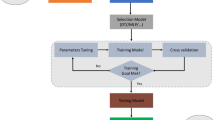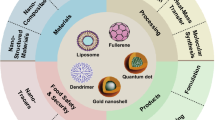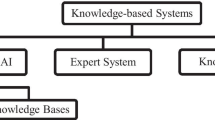Abstract
Edible oil acts as an essential part in diet and nutrition, and it is important for a healthy life. Edible oils are susceptible to quality degradation, due to decomposition and microbial decay, which causes nutritional loss and undesirable effects. Consumption of unhealthy edible oil creates hazardous health effects such as dementia, heart-related disorders, cancer, Alzheimer’s, and Parkinsons diseases. The food safety concern has increased globally, and there is a need for food quality analyzing system. Chemical methods have been widely used to measure the quality of edible oils but the chemical methods consume more time for evaluating the quality of edible oil, and the oil ingredients are changed, due to chemical reactions. This research work proposes a non-destructive technique, which is based on microwave technologies and deep learning methods to measure the quality of edible oil. The waveguide method at 8-12 GHz frequency to measure the microwave parameters such as attenuation constant, dielectric constant, dielectric loss factor, penetration depth, and permittivity of edible oils. The experimental methods use horn antenna, isolator, frequency meter, and microwave detector. The microwave parameters are utilized to train the deep residual network (DRN). The DRN training algorithm is designed by using proposed weighted moth-flame optimization (WMFO) algorithm. The proposed method (i.e., WMFO-DRN) is compared with four well-known techniques, such as cat swarm optimization (CSO) algorithm, particle swarm optimization (PSO) algorithm, genetic algorithm, and gray wolf optimization (GWO) algorithm. The experimental results validate that proposed WMFO algorithm is very aggressive and achieve maximum accuracy of 0.911, sensitivity of 0.916, and specificity of 0.906.







Similar content being viewed by others
Data Availability
None.
References
Agranovich D, Renhart I, Ishai PB, Katz G, Bezman D, Feldman Y (2016) A microwave sensor for the characterization of bovine milk. Food Control 63:195–200. https://doi.org/10.1016/j.foodcont.2015.11.032
Arena P, Rigano F, Guarnaccia P, Dugo P, Mondello L, Trovato E (2022) Elucidation of the lipid composition of hemp (Cannabis sativa L.) products by means of gas chromatography and ultra-high performance liquid chromatography coupled to mass spectrometry detection. Molecules 27:3358. https://doi.org/10.3390/molecules27103358
Chen J, Pitchai K, Birla S, Jones D, Subbiah J, Gonzalez R (2015) Development of a multi-temperature calibration method for measuring dielectric properties of food. IEEE Trans Dielectr Electr Insul 2:626–634. https://doi.org/10.1109/TDEI.2014.004182
Chen Z, Chen Y, Lijun W, Cheng S, Lin P (2019) Deep residual network based fault detection and diagnosis of photovoltaic arrays using current-voltage curves and ambient conditions. Energy Convers Manag 198:111793. https://doi.org/10.1016/j.enconman.2019.111793
Clairand JM, Leon MB, Escriva-Escriva G, Pantaleo AM (2020) Review of energy efficiency technologies in the food industry: trends, barriers, and opportunities. IEEE Access 8:48015–48029. https://doi.org/10.1109/ACCESS.2020.2979077
Debjani C, Das S, Das H (2013) Aggregation of sensory data using fuzzy logic for sensory quality evaluation of food. J Food Sci Technol 6:1088–1096. https://doi.org/10.1007/s13197-011-0433-x
Furstenau LB, Sott MK, Kipper LM, Machado EL, Lopez-Robles JR, Dohan MS, Cobo MJ, Zahid A, Abbasi QH, Imran MA (2020) Link between sustainability and industry 4.0: trends, challenges and new perspectives. IEEE Access 8:140079–140096. https://doi.org/10.1109/ACCESS.2020.3012812
Hong YK, Liu F, Tang Z, Pedrow PD, Sablani SS, Yang R, Tang J (2021) A simplified approach to assist process development for microwave assisted pasteurization of packaged food products. Innov Food Sci Emerg Technol 68:102628. https://doi.org/10.1016/j.ifset.2021.102628
Iymen G, Tanriver G, Hayirlioglu YZ, Ergen O (2020) Artificial intelligence-based identification of butter variations as a model study for detecting food adulteration. Innov Food Sci Emerg Technol 66:102527. https://doi.org/10.1016/j.ifset.2020.102527
Georgepeter J, Sundaram M, Prabin Jose J (2022) Weighted 1D-local binary pattern features and Taylor-Henry gas solubility optimization based Deep Maxout network for discovering epileptic seizure using EEG. Digit Signal Process 122:103349. https://doi.org/10.1016/j.dsp.2021.103349
Javanbakht N, Xiao G, Amaya RE (2021) A comprehensive review of portable microwave sensors for grains and mineral materials moisture content monitoring. IEEE Access 9:120176–120184. https://doi.org/10.1109/ACCESS.2021.3108906
Jha SN, Narsaiah K, Basediya AL, Sharma R, Jaiswal P, Kumar R, Bhardwaj R (2011) Measurement techniques and application of electrical properties for non-destructive quality evaluation of foods—a review. J Food Sci Technol 48:387–411. https://doi.org/10.1007/s13197-011-0263-x
Jose JP, Muniasamy S, Georgepeter J (2021) Rag-bull rider optimisation with deep recurrent neural network for epileptic seizure detection using electroencephalogram. IET Signal Process 15:122–140. https://doi.org/10.1049/sil2.12019
Prabin JJ, Sundaram M, Jaffino G (2021) Adaptive rag-bull rider: a modified self-adaptive optimization algorithm for epileptic seizure detection with deep stacked autoencoder using electroencephalogram. Biomed Signal Process Control 64:102322. https://doi.org/10.1016/j.bspc.2020.102322
Lam MB, Nguyen TH, Chung WY (2020) Deep learning-based food quality estimation using radio frequency-powered sensor mote. IEEE Access 8:88360–88371. https://doi.org/10.1109/ACCESS.2020.2993053
Lechhab T, Lechhab W, Trovato E, Salmoun F, Mondello L, Cacciola F (2022a) Impact of edaphoclimatic conditions and crop season on olive oil’s fatty acids. Agronomy J 114(6):3118–3128. https://doi.org/10.1002/agj2.21161
Lechhab T, Lechhab W, Trovato E, Salmoun F, Mondello L (2022b) Cacciola F (2022) Screening of the volatile composition of Moroccan olive oils by using SPME/GC-MS-FID over a two-year period: a pedoclimatic discrimination. Horticulturae 8:925. https://doi.org/10.3390/horticulturae8100925
Lodi MB, Curreli N, Melis A, Garau E, Fanari F, Fedeli A, Randazzo A, Mazzarella G, Fanti A (2021) Microwave characterization and modeling of the Carasau bread doughs during leavening. IEEE Access 9:159833–159847. https://doi.org/10.1109/ACCESS.2021.3131207
Luo Y, Liao T, Xia Y, Li J, Zhang L, Xi Y (2020) Dielectric properties and microwave heating behavior of neutral leaching residues from zinc metallurgy in the microwave field. Green Process Synth 9:97–106. https://doi.org/10.1515/gps-2020-0011
Meng Z, Zhipeng W, Gray J (2018) Microwave sensor technologies for food evaluation and analysis: methods, challenges and solutions. Transactions of the Institute of Measurement and Control 40:3433–3448. https://doi.org/10.1177/0142331217721968
Mirjalili S (2015) Moth-flame optimization algorithm: a novel nature-inspired heuristic paradigm. Knowl Based Syst 89:228–249. https://doi.org/10.1016/j.knosys.2015.07.006
Nagarajan K, Judge J, Huertero AM, Graham WD (2012) Impact of assimilating passive microwave observations on root-zone soil moisture under dynamic vegetation conditions. IEEE Trans Geosci Remote Sens 50:4279–4291. https://doi.org/10.1109/TGRS.2012.2191154
Narsaiah K, Jha SN, Bhardwaj R, Sharma R, Kumar R (2012) Optical biosensors for food quality and safety assurance—a review. J Food Sci Technol 49:383–406. https://doi.org/10.1007/s13197-011-0437-6
Nelson SO (1991) Dielectric properties of agricultural products-measurements and applications. IEEE Trans Dielectr Electr Insul 26:845–869. https://doi.org/10.1109/14.99097
Nelson SO, Bartley PG (2002) Measuring frequency-and temperature-dependent permittivities of food materials. IEEE Trans Instrum Meas 51:589–592. https://doi.org/10.1109/TIM.2002.802244
Patel KK, Kar A, Jha SN, Khan MA (2012) Machine vision system: a tool for quality inspection of food and agricultural products. J Food Sci Technol 49:123–141. https://doi.org/10.1007/s13197-011-0321-4
Pereira RC, de Deus J, Carneiro S, Cardoso M, de Angelis P (2022) Evaluating nutrition quality of packaged foods carrying claims and marketing techniques in Brazil using four nutrient profile models. J Food Sci Technol 59:1520–1528. https://doi.org/10.1007/s13197-021-05162-w
Rashed MS, Felfoldi J (2018) Ultrasonic method for identifying oil types and their mixtures. Prog Agric Eng Sci 14:111–119. https://doi.org/10.1556/446.14.2018.s1.11
Rubalya Valantina S, Uma S, Prakash BGJ, Phebee Angeline DR, Alfred Maxwell A, Aravindhan R (2019) Modelling, characterization and quality analysis of heated oil using electric moment and chemical properties. J Food Sci Technol 56:571–579. https://doi.org/10.1007/s13197-018-3511-5
Tang J, Resurreccion FP Jr (2009) Electromagnetic basis of microwave heating. In: Development of packaging and products for use in microwave ovens, vol 3. Woodhead Publishing, pp 3–71. https://doi.org/10.1016/B978-0-08-102713-4.00001-3
Trabelsi S, Kraszewski AW, Nelson SO (1998) A microwave method for on-line determination of bulk density and moisture content of particulate materials. IEEE Trans Instrum Meas 47:127–132. https://doi.org/10.1109/19.728804
Wu D, Sun D-W (2013) Advanced applications of hyperspectral imaging technology for food quality and safety analysis and assessment: a review—Part II: Applications. Innov Food Sci Emerg Technol 19:15–28. https://doi.org/10.1016/j.ifset.2013.04.014
Acknowledgements
We would also like to thank Department of Electronics and Communication Engineering, Kamaraj College of Engineering & Technology, Madurai, India, for providing all the facilities to carry out this work.
Author information
Authors and Affiliations
Contributions
All authors contributed to the design and implementation of the research, to the analysis of the results, and to the writing of the manuscript.
Corresponding author
Ethics declarations
Ethical Approval
This paper does not contain any studies with human participants or animals performed by any of the authors.
Conflict of Interest
R. Ashok declares that he has no conflict of interest. M. Sundaram declares that he has no conflict of interest. G. Jaffino declares that she has no conflict of interest. J. Prabin Jose declares that he has no conflict of interest.
Additional information
Publisher’s Note
Springer Nature remains neutral with regard to jurisdictional claims in published maps and institutional affiliations.
Rights and permissions
Springer Nature or its licensor (e.g. a society or other partner) holds exclusive rights to this article under a publishing agreement with the author(s) or other rightsholder(s); author self-archiving of the accepted manuscript version of this article is solely governed by the terms of such publishing agreement and applicable law.
About this article
Cite this article
Ashok, R., Sundaram, M., Jaffino, G. et al. Weighted Moth-Flame Optimization Algorithm for Edible Oil Quality Detection Using Microwave Technologies. Food Anal. Methods 16, 1487–1497 (2023). https://doi.org/10.1007/s12161-023-02517-1
Received:
Accepted:
Published:
Issue Date:
DOI: https://doi.org/10.1007/s12161-023-02517-1




